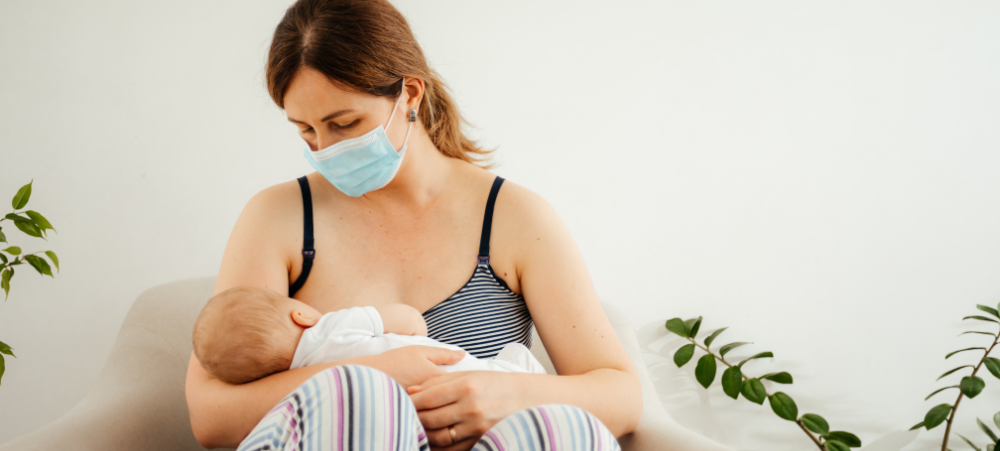The first thing that a nursing mom will worry about when she gets sick is the possibility of infecting her baby. This concern may lead to limiting contact with her baby and even to terminate breastfeeding out of fear of making her baby sick.
In truth, it is very rare for a mom to have to stop breastfeeding due to illness. Sickness is not transmitted via breastmilk unless bacteria is present in the mother’s blood (such as septicaemia). During sickness, the mother’s body will produce antibodies (specific to that illness) which will actually protect her baby from the infection that she is carrying. Your baby will have been exposed to the illness a couple of days before you even realised that you were sick and so the best thing that you can do for your baby while sick, is to FEED. If baby does get sick, it will most likely be a much milder case than anybody else in the family has suffered.
Because of the antibodies which your milk carries, limiting breastfeeding may actually increase your babies chances of getting sick.
Contrary to popular belief, breastfeeding during a bout of food poisoning is completely safe unless the bacteria has crossed over to the mother’s bloodstream which would result in septicaemia and ultimately the mother being hospitalised. As long as the food poisoning is contained to your general vomiting, stomach cramps and diarrhoea, breastfeeding can continue as normal.
While nursing is the best thing for your baby, it is not always the easiest task to carry out when you are not well. One may notice a slight drop in your milk supply and this could be due to a number of reasons, but it will build up again quickly once you have recovered. Rest well, keep yourself hydrated and make sure that the medications you are taking are safe for breastfeeding. Try to avoid large doses of vitamin B as well as drugs which contain pseudoephedrine (present in most oral decongestants) as well as throat lozenges containing menthol. Though safe for baby, these may decrease your milk supply. Opt for decongestant sprays rather than oral meds and use these sprays for the recommended time period only. Always take medication immediately after feeding to give your body the maximum amount of time to work through your meds.
If possible, have someone help you with other daily tasks so that you can focus on feeding and recovering without the hassle of running everyday errands. Feed baby lying down to maximise rest and to minimise the chance of dropping your baby.
Although many medications are completely safe while breastfeeding, you may wish to consider a few natural tips and remedies to see you through your next illness:
- Hot liquids relieve congestion, drink up
- Drink fenugreek tea to help ease head and chest congestion (fenugreek is also used to increase breastmilk)
- Inhale a vapour made with apple cider vinegar to help alleviate congestion
- Massage and hot packs placed on and around sinuses can ease pain and congestion
- Drinking strong black tea (using 2 teabags) can bring some comfort to a sore / scratchy throat
- Warm Sprite / lemonade has an anaesthetising effect on a sore throat
- Make your own rehydration drink using 1/2teaspoon salt, 1 teaspoon bicarb, 8 teaspoons sugar, 250ml orange juice, 1l water
- Drink ginger tea to relieve nausea
*please note, this blog is in no way intended to replace medical advice. Ask your doctor should you have any queries or concerns regarding medication that you are taking while breastfeeding.
We understand that there are many aspects that encompass a Mother, Father or Child and strive toward providing resources and services that accommodates this.
Our content is aimed to inform and educate families on issues starting from pregnancy through to the challenges of the teen-age years.
- Say Hello to the Ultimate Holiday Brunch Bite - December 17, 2025
- Tiny Toons Looniversity Returns: Meet the Voice Behind Plucky and Hamton! - December 12, 2025
- From Pain to Possibility: Panado®’s New Marketing Campaign, Highlights The Joy Of Pain Relief - December 10, 2025





